the Asia Peace Conference Panelist Biographies
the United States
Gary Roughead
Admiral, U.S. Navy (Retired)

Admiral Roughead is a 1973 graduate of the U.S. Naval Academy. He became the 29th Chief of Naval Operations in September of 2007, after holding six operational commands. He is one of only two officers in the history of the Navy to have commanded both the U.S. Atlantic and Pacific Fleets.
Ashore he served as the Commandant, U.S. Naval Academy, the Navy's Chief of Legislative Affairs, responsible for the Department of the Navy's interaction with Congress. Admiral Roughead was also the Deputy Commander, U.S. Pacific Command. In retirement, Admiral Roughead is Robert and Marion Oster Distinguished Military Fellow at the Hoover Institution at Stanford University and serves on the boards of directors of the Northrop Grumman Corporation, Maersk Line, Limited, and the Marinette Marine Corporation. He is a Trustee of Dodge and Cox Funds, a Trustee of the Johns Hopkins University, and serves on the Board of Managers of the Johns Hopkins University Applied Physics Laboratory.
Daniel Russel
Former Assistant Secretary of State for East Asian and Pacific Affairs

Englsih bioDaniel Russel is Vice President for International Security and Diplomacy at the Asia Society Policy Institute (ASPI). Previously he served as a Diplomat in Residence and Senior Fellow with ASPI for a one year term. A career member of the Senior Foreign Service at the U.S. Department of State, he most recently served as the Assistant Secretary of State for East Asian and Pacific Affairs. Prior to his appointment as Assistant Secretary on July 12, 2013, Mr. Russel served at the White House as Special Assistant to the President and National Security Council (NSC) Senior Director for Asian Affairs. During his tenure there, he helped formulate President Obama's strategic rebalance to the Asia Pacific region, including efforts to strengthen alliances, deepen U.S. engagement with multilateral organizations, and expand cooperation with emerging powers in the region.
Prior to joining the NSC in January of 2009, he served as Director of the Office of Japanese Affairs and had assignments as U.S. Consul General in Osaka-Kobe, Japan (2005-2008); Deputy Chief of Mission at the U.S. Embassy in The Hague, Netherlands (2002-2005); Deputy Chief of Mission at the U.S. Embassy in Nicosia, Cyprus (1999-2002); Chief of Staff to the Under Secretary of State for Political Affairs, Ambassador Thomas R. Pickering (1997-99); Special Assistant to the Under Secretary of State for Political Affairs (1995-96); Political Section Unit Chief at U.S. Embassy Seoul, Republic of Korea (1992-95); Political Advisor to the Permanent Representative to the U.S. Mission to the United Nations, Ambassador Pickering (1989-92); Vice Consul in Osaka and Branch Office Manager in Nagoya, Japan (1987-89); and Assistant to the Ambassador to Japan, former Senate Majority Leader Mike Mansfield (1985-87).
In 1996, Mr. Russel was awarded the State Department's Una Chapman Cox Fellowship sabbatical and authored America's Place in the World, a book published by Georgetown University. Before joining the Foreign Service, he was manager for an international firm in New York City.
Mr. Russel was educated at Sarah Lawrence College and University College, University of London, UK.
Frank Jannuzi
President and CEO, The Maureen and Mike Mansfield Foundation

Frank Jannuzi joined the Maureen and Mike Mansfield Foundation as President and Chief Executive Officer in April 2014. He previously served as Deputy Executive Director (Advocacy, Policy and Research) at Amnesty International, USA. There he shaped and promoted legislation and policies to advance universal human rights, protect individuals and communities at risk, and free prisoners of conscience.
From 1997-2012 Mr. Jannuzi was Policy Director, East Asian and Pacific Affairs, for the U.S. Senate Foreign Relations Committee, where he advised Committee Chairmen Joseph Biden and John Kerry on a range of security, political, economic, and human rights issues pertaining to U.S. relations with East Asia. During his tenure with the Foreign Relations Committee, he also was a Hitachi Fellow of the Council on Foreign Relations from 2006-2007, serving as a visiting lecturer at Keio University and a visiting scholar at the Institute of International Policy Studies in Tokyo. Early in his career, he served for nine years as an analyst in the U.S. Department of State's Bureau of Intelligence and Research.
Mr. Jannuzi holds a Bachelor of Arts degree from Yale University and Master in Public Policy degree from the John F. Kennedy School of Government, Harvard University. He has traveled throughout Asia and has written extensively on East Asia policy issues, including U.S. relations with Japan, China, and North Korea. He lives in Baltimore with his wife, Dr. Jennifer Martin, and their two daughters Zoe and Camille.
Michael Schiffer
Senior Advisor and Counselor on the Democratic Staff of the Senate Foreign Relations Committee

Mr. Schiffer is senior advisor and counselor on the Democratic Staff of the Senate Foreign Relations Committee. From 2009 to 2012, he served as Deputy Assistant Secretary of Defense for East Asia in the Office of the Assistant Secretary of Defense for Asian and Pacific Security Affairs. Before joining the Department of Defense he was a program officer at the Stanley Foundation, responsible for the Foundation`s Asia programs as well as a range of other U.S. national and global security issues and in 2004-2005 was a Council on Foreign Relations Hitachi International Affairs Fellow in Japan. From 1995 to 2004, he worked on the staff of U.S. Senator Dianne Feinstein (D-CA), including as her senior national security adviser and legislative director. Prior to that, he was director of international security programs at New York University`s Center for War, Peace, and the News Media. Mr. Schiffer received his undergraduate degree from Georgetown University and graduate degrees from the London School of Economics and New York University.
Mark Montgomery
the Executive Director of the Cyberspace Solarium Commission

Mark Montgomery serves as the Senior Advisor to the Chairmen of the Cyberspace Solarium Commission, and was previously the Executive Director. He is also the Senior Director of the Center on Cyber and Technology Innovation and a Senior Fellow at the Foundation for Defense of Democracies. He previously served as Policy Director for the Senate Armed Services Committee under the leadership of Senator John S. McCain and completed 32 years as a nuclear trained surface warfare officer in the U.S. Navy, retiring as a Rear Admiral in 2017.
Robert P. Girrier
President, Pacific Forum

Bob Girrier is president of Pacific Forum, a Honolulu-based non-profit, non-partisan private foreign policy research institute providing timely, informative, and innovative analysis of political, security and strategic developments in the Indo-Pacific region.
A naval leader with over thirty years' maritime experience and extensive operations throughout the Indo-Pacific, Europe and Middle East, his operational assignments culminated as Deputy Commander Pacific Fleet and as the Director of Operations for U.S. Pacific Command. Efforts focused on directing theater-wide operations and day-to-day engagement; building high-level allied and partner relationships & capacity; developing strategy, planning for contingencies and executing crisis response. Command assignments included two carrier strike groups, a destroyer squadron, destroyer, global mine warfare operations and a mine countermeasures ship.
In theater, he served as lead maritime component representative to the team negotiating Rules of Behavior in the Maritime Domain with the Chinese Navy. He also led the first U.S. on-scene naval support during Operation Tomodachi in the wake of the Japanese earthquake and tsunami and resulting consequence management and disaster response efforts. In Washington, he led the stand-up of the Navy Staff's first-ever office of Unmanned Warfare Systems, making the value case for unmanned & manned systems working in collaboration --and more capably-- across increasingly connected environments.
China
Jia Qingguo
Professor and former Dean of the School of International Studies of Peking University

Jia Qingguo is professor and former dean of the School of International Studies of Peking University. He is also Director of the Institute for China-US People-to-People Exchange and Director of the Center for China and Global Governance at Peking University. He received his Ph.D. from Cornell University in 1988. He has taught in University of Vermont, Cornell University, University of California at San Diego, University of Sydney in Australia as well as Peking University. He was a research fellow at the Brookings Institution between 1985 and 1986, a visiting professor at the University of Vienna in 1997 and a CNAPS fellow at the Brookings Institution between 2001 and 2002. He is a member of the Standing Committee and the Foreign Affairs Committee of the National Committee of the Chinese People's Political Consultative Conference. He is also Vice President of the Chinese American Studies Association, Vice President of China International Relations Studies Association, and Vice President of Chinese Japanese Studies Association. He is serving on the editorial board of more than a dozen established domestic and international academic journals. He has published extensively on U.S.-China relations, Northeast Asia, relations between the Chinese mainland and Taiwan, Chinese foreign policy and Chinese politics.
Zhang Tuosheng
Principal Researcher, Chairman of Academic Committee, Grandview Institution

Zhang Tuosheng is Senior Fellow, Chairman of the Academic Committee, Director of the Center for Foreign Policy Studies at China Foundation for International and Strategic Studies.
He earned his master degree in Modern Chinese History from Central Party School of the Chinese Communist Party. From late 1970s to late 1980s as a drillmaster he served in the PLA Military Collage and as a research fellow in the Institute of Strategic Studies of PLA National Defense University. In the early 1990s he was the Deputy Defense Attache at the Chinese Embassy in UK. Since 1992, he has worked in the CFISS in charge of organizing and coordinating academic and policy researches. His main research interests are Sino-US relations, Sino-Japan relations, Asia-Pacific security, security crisis management and China's foreign policy. He has authored or co-authored lots of research publications including papers, reports and books.
YANG Chaoying
Vice Chairman, China Foundation for International & Strategic Studies (CFISS)

Major General (Ret) Yang Chaoyang is Vice Chairman of China Foundation for International & Strategic Studies (CFISS) since 2018, where he leads CFISS's dialogues on Sino-Japan security relations and security crisis management with Genron NPO and NIDS. Before joining CFISS, he had a long career in the PLA, and served successively in various field and staff positions, including company commander, brigade commander, Deputy Military Attaché in Chinese embassy in the UK, and Military Attaché in Iraq and Brazil. His last appointment was Deputy Force Commander of UN Peacekeeping Mission in South Sudan from 2015 to 2017. Maj. Gen. Yang gained his Master's degree in public management from Harvard University.
Teng Jianqun
Senior research fellow at the Department for American Studies, CIIS
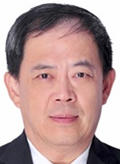
Dr. Teng Jianqun is a senior research fellow at the Department for American Studies, CIIS. He has worked at CIIS since he was discharged from active military service in September 2004. Dr. Teng served in the PLA for 25 years, first in the Navy (1979-1992) and later in the Academy of Military Science (1992-2004). He was the editor-in-chief of the Academy of Military Science journal World Military Review and also an assistant research fellow there. Dr. Teng has published several dozens of articles on the issues of Sino-U.S. relations, arms control, disarmament, and nonproliferation, in addition to authoring several reports and books.
Dr. Teng received his BA in English language and literature from PLA Naval Communication College in 1983, his MA in military science from PLA Academy of Military Science in 1995, his MA in South Asian area studies from School of Oriental and African Studies (SOAS), London University in 1999, and his PhD degree in international relations from Peking University in 2006.
Dr. Teng is also a professor at Hunan Normal University and teaching the History of U.S. Diplomacy, and the Theories of International Relations.
Zhou Bo
Senior fellow of Center for International Security and Strategy Tsinghua University
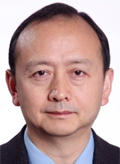
Senior Colonel Zhou Bo (retired) started his military service in 1979. He served in different posts in Guangzhou Air Force Regional Command. From 1993 he worked successively as staff officer, Deputy Director General of West Asia and Africa Bureau and then Deputy Director General of General Planning Bureau of the Foreign Affairs Office of the Ministry of National Defense of China, Chinese Defense Attaché to the Republic of Namibia and Director of the Centre for Security Cooperation in the Office for International Military Cooperation, Ministry of National Defense. He is now a senior fellow of Center for International Security and Strategy Tsinghua University and China Forum expert.
Senior Colonel Zhou Bo has published more than 100 essays and opinions in English including in Foreign Affairs, Foreign Policy, Financial Times, The New York Times, The Wall Street Journal, the Australian, South China Morning Post, The Diplomat, Strait Times, China~US Focus and China Daily, etc. He had exclusive interviews with BBC,NBC, Time, Euronews, Channel NewsAsia (Singapore), NHK, Russia Today, CNBC and CGTN. He speaks as a PLA delegate at Shangri-La Dialogue in Singapore and at Munich Security conference. He is supervisor to foreign post-graduate officers at PLA National Defense University.
Senior Colonel Zhou Bo is an under-graduate of Air Force Engineering College and a postgraduate of St Edmund College of Cambridge University (Mphill in International Relations). He was a visiting fellow to the Land Warfare Studies Centre of the Australian Army in 1999. He has attended various courses in Harvard University, Westminster University, PLA National Defense University, PLA University of Science and Technology for the National Defense and PLA Army Command College (Shijiazhuang).
Republic of Korea
Choi Kang
Vice President at the Asan Institute for Policy Studies
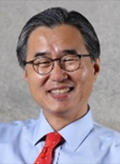
Choi Kang is the Vice President (Acting President) and a Principal Fellow at the Asan Institute for Policy Studies. Before joining the Asan Institute, he was the dean of Planning and Assessment at the Korea National Diplomatic Academy; president of the Institute for Foreign Affairs and National Security (IFANS) (2012); chief executive officer for Task Force for Current Defense Issues (2002-2005) at the Korea Institute for Defense Analyses (KIDA). Dr. Choi also served in the National Security Council Secretariat as senior director for Policy Planning and Coordination (1998-2002). He was also a South Korean delegate to the Four-Party Talks. He writes extensively on the ROK-US alliance, North Korean military affairs, inter-Korean relations, crisis management, and multilateral security cooperation.
Ho-Young Ahn
Former Republic of Korea's Ambassador to the United States
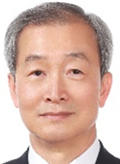
Ambassador Ahn is the President of the University of North Korean Studies, a premier institution for research and education on North Korea related issues. Ambassador Ahn used to be Republic of Korea's Ambassador to the United States (2013-17). He also used to work as Deputy Minister for Trade, Ambassador to the European Union and Belgium, and the First Vice Foreign Minister.
Ambassador Ahn studied international relations and law at the Seoul National University (BA), the Georgetown University (MS), Korea National Open University (LLB) and the Georgetown Law School (LLM). He received a Ph.D. degree (Hon) in political science from the Kyung-Nam University.
ZHeo Taekeun
Former Brigadier General of Ministry of National Defense
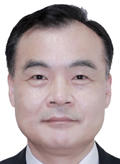
Brigadier General Heo, Taekeun (retired) is a 1989 graduate of the Korean Military Academy. He served in different posts related ROK defense policy in Ministry of National Defense. His posts includes Director of US Policy Division, Deputy Director General of Policy Planning Bureau, and Deputy Director General of North Korea Policy Bureau. During his service in defense policy arena, he participated in developing policies of ROK-U.S. alliance issues, ROK-U.S.-Japan trilateral security cooperation, North Korean denuclearization, build-up of military capabilities, crisis management, and arms control.
He served in the combined environment several times with the U.S. military including a platoon leader of Join Security Area in the DMZ, a liaison officer of MNC-I (Multi National Command-Iraq) in Bagdad during Operation Iraqi Freedom, an exchange officer of U.S. Joint Forces Command, and Deputy Commanding General of the 8th U.S. Army. He was awarded the U.S. Legion of Merit in 2022 and the Joint Service Commendation Medal in 2012.
BG Heo received his M.A. in politics from Yonsei University in 2000 and his PhD degree in international politics from Kyonggi University in 2013. He studied at APCSS (Asia-Pacific Center for Security Studies) in 2008.
Japan
Shinsuke Sugiyama
former Vice-Minister for Foreign Affairs, Ministry of Foreign Affairs
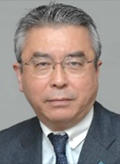
Shinsuke Sugiyama entered the Ministry of Foreign Affairs (MOFA) in April 1977. He then served as the Director of the Treaties Division of the Treaties Bureau and as Minister and Deputy Chief of Mission at the Japanese Embassy in Egypt. He then concurrently held the positions of Deputy Director-General for Middle East at the Middle Eastern and African Affairs Bureau and Deputy Director-General of the International Cooperation Bureau. In 2008, he became the Ambassador and Director-General for Global Issues. In 2011, he became the Director-General of Asian and Oceanian Affairs Bureau. In 2013, he served as the Deputy Minister for Foreign Affairs. Since 2016, he has served as Vice-Minister for Foreign Affairs. He was appointed Ambassador Extraordinary and Plenipotentiary of Japan to the United States of America in 2018. He is currently an advisor to the Ministry of Foreign Affairs.
Katsutoshi KAWANO
former Chief of Staff, the Japan Self-Defense Forces

Admiral Katsutoshi Kawano(Retired) is former Chief of Staff, Joint Staff. A graduate of National Defense Academy with a bachelor's degree in Mechanical Engineering, Admiral Kawano was commissioned as a surface warfare officer in 1979. He earned a master's degree in International Relations from Tsukuba University in 1990. He is also a graduate of Command and Staff Course at the U.S. Naval War College.
Admiral Kawano's career as a surface warfare officer includes assignments aboard JS Haruna, JS Shirane, and JS Oyodo as Commanding Officer from August 1992 to August 1993.His fleet command assignments include Commander, Escort Division 3;Commander, Escort Flotilla 3; Commander, Marine Warfare Force; Commander Fleet Escort Force; and, Commander in Chief, Self-Defense Fleet prior to assuming his previous post as Chief of Staff, Japan Maritime Self-Defense Force on 26 July 2012.Some of the most notable responsibilities he has held ashore are Director General, Administration Department MSO; Director General, Operations and Plans Department MSO; and Vice Chief of Staff, Joint Staff.Admiral Kawano hadserved as the 5th Chief of Staff, Joint Staff from October 14, 2014 until his retirement on April 1, 2019.
Yasushi KUDO
言論NPO代表

Yasushi Kudo is the founder and president of the Genron NPO since its establishment in 2001. In 2005, he launched annual civil dialogue ("Tokyo-Beijing Forum") and joint opinion poll between Japan and China, which have been conducted over the 15 years since then. In 2013, he newly launched a dialogue, the Japan-Korea Future Dialogue, between Japan and Korea and has conducted a comparative opinion poll on impression of each other's country. From 2012, Kudo has served as Japanese delegation of the Council of Councils, an international think tank network initiated by the Council on Foreign Relations. "The Asia Forum of Opinion Leaders" has also been established as a venue for open and free debate for intellectuals in Japan and Southeast Asian countries to jointly identify common challenges, and advocate solutions to them, while collaborating to bolster democracy and address challenges to democracy. In 2017, Kudo launched the "Tokyo Conference," a discussion platform that invites 10 of the world's leading think tanks to exchange views on global issues, and propose recommendations to strengthen the liberal order and democracy.
Yoji KODA
former Commander in Chief, the Self Defense Fleet

Admiral Roughead is a 1973 graduate of the U.S. Naval Academy. He became the 29th Chief of Naval Operations in September of 2007, after holding six operational commands. He is one of only two officers in the history of the Navy to have commanded both the U.S. Atlantic and Pacific Fleets.
Ashore he served as the Commandant, U.S. Naval Academy, the Navy's Chief of Legislative Affairs, responsible for the Department of the Navy's interaction with Congress. Admiral Roughead was also the Deputy Commander, U.S. Pacific Command. In retirement, Admiral Roughead is Robert and Marion Oster Distinguished Military Fellow at the Hoover Institution at Stanford University and serves on the boards of directors of the Northrop Grumman Corporation, Maersk Line, Limited, and the Marinette Marine Corporation. He is a Trustee of Dodge and Cox Funds, a Trustee of the Johns Hopkins University, and serves on the Board of Managers of the Johns Hopkins University Applied Physics Laboratory.
Yoshihide SOEYA
Professor Emeritus of Political Science and International Relations at the Faculty of Law, Keio University

Yoshihide SOEYA is a ProfessorEmeritus of political science and international relations at the Faculty of Law of Keio University. His areas of interest are politics and security in East Asia, and Japanese diplomacy and its external relations. He served as the Director of the Institute of East Asian Studies of the same university for six years until September 2013, and as the Director of its Center for Contemporary Korean Studies for five years until March 2016. His most recent publications in English include "The Rise of China in Asia: Japan at the Nexus," in Asle Toje, ed., Will China's Rise be Peaceful? Security, Stability, and Legitimacy (Oxford: Oxford University Press, 2018), and "The Case for an Alternative Strategy for Japan: Beyond the Article 9-Alliance Regime," in Michael J. Green and Zack Cooper, eds., Postwar Japan: Growth, Security and Uncertainty since 1945 (Washington D.C.: CSIS, 2017). Dr. Soeya received Ph.D. from the University of Michigan in 1987, majoring in world politics.
Yuji MIYAMOTO
Chairman of Miyamoto Institute of Asian Research; Former Ambassador to the People's Republic of China

Yuji Miyamoto is the chairman of the Miyamoto Institute of Asian Research. At the Ministry of Foreign Affairs, he served as the Director of China Division, Fellow at the International Institute for Strategic Studies (IISS), Consul General of Japan in Atlanta, Deputy Director-General of the Disarmament, Non-proliferation and Science Department, Ambassador to Myanmar, and Ambassador to China between 2006 and 2010.